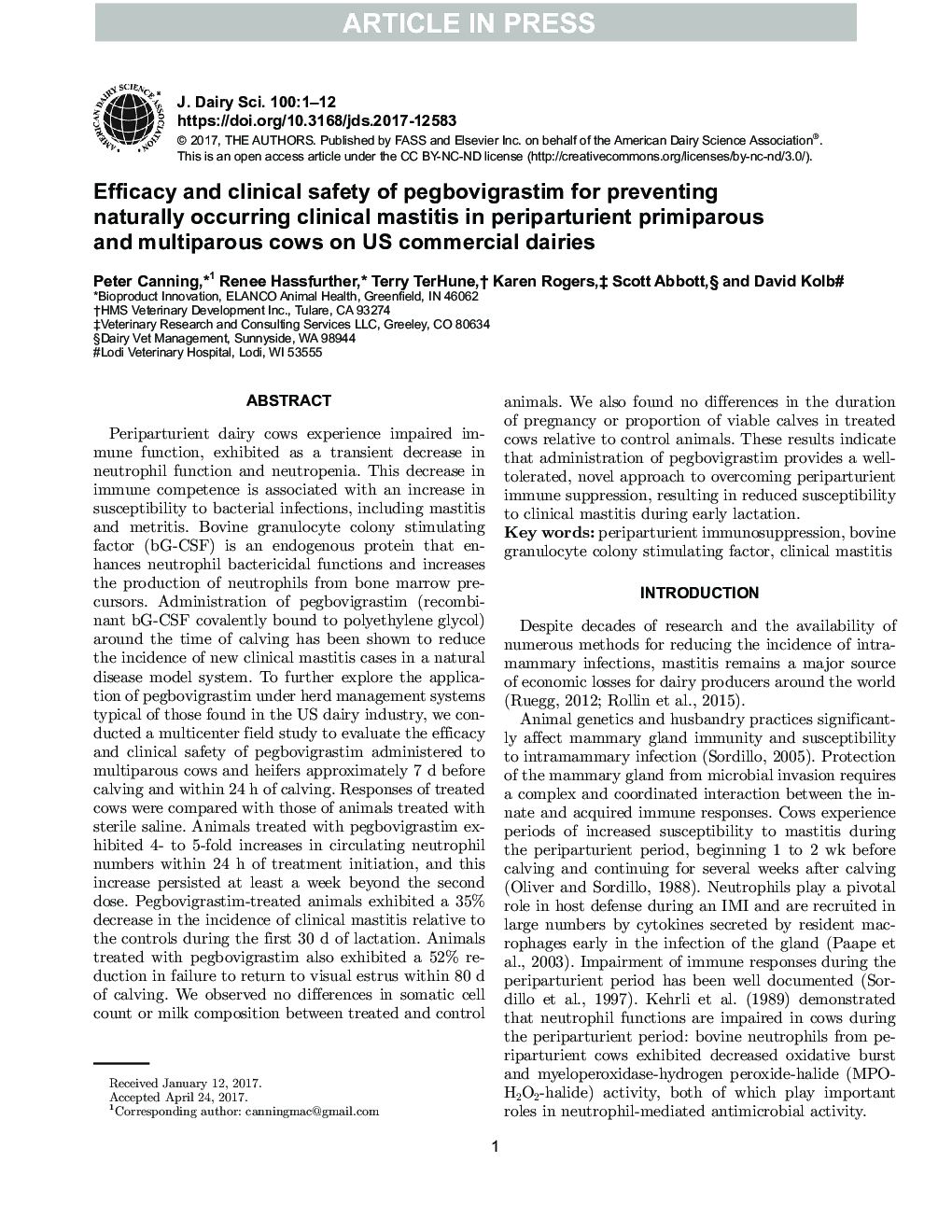| Article ID | Journal | Published Year | Pages | File Type |
|---|---|---|---|---|
| 5541929 | Journal of Dairy Science | 2017 | 12 Pages |
Abstract
Periparturient dairy cows experience impaired immune function, exhibited as a transient decrease in neutrophil function. This decrease in immune competence is associated with an increase in susceptibility to bacterial infections, including mastitis and metritis. Bovine granulocyte colony stimulating factor (bG-CSF) is an endogenous protein that enhances neutrophil bactericidal functions and increases the production of neutrophils from bone marrow precursors. Administration of pegbovigrastim (recombinant bG-CSF covalently bound to polyethylene glycol) around the time of calving has been shown to reduce the incidence of new clinical mastitis cases in a natural disease model system. To further explore the application of pegbovigrastim under herd management systems typical of those found in the US dairy industry, we conducted a multicenter field study to evaluate the efficacy and clinical safety of pegbovigrastim administered to multiparous cows and heifers approximately 7 d before calving and within 24 h of calving. Responses of treated cows were compared with those of animals treated with sterile saline. Animals treated with pegbovigrastim exhibited 4- to 5-fold increases in circulating neutrophil numbers within 24 h of treatment initiation, and this increase persisted at least a week beyond the second dose. Pegbovigrastim-treated animals exhibited a 35% decrease in the incidence of clinical mastitis relative to the controls during the first 30 d of lactation. Animals treated with pegbovigrastim also exhibited a 52% reduction in failure to return to visual estrus within 80 d of calving. We observed no differences in somatic cell count or milk composition between treated and control animals. We also found no differences in the duration of pregnancy or proportion of viable calves in treated cows relative to control animals. These results indicate that administration of pegbovigrastim provides a well-tolerated, novel approach to overcoming periparturient immune suppression, resulting in reduced susceptibility to clinical mastitis during early lactation.
Keywords
Related Topics
Life Sciences
Agricultural and Biological Sciences
Animal Science and Zoology
Authors
Peter Canning, Renee Hassfurther, Terry TerHune, Karen Rogers, Scott Abbott, David Kolb,
